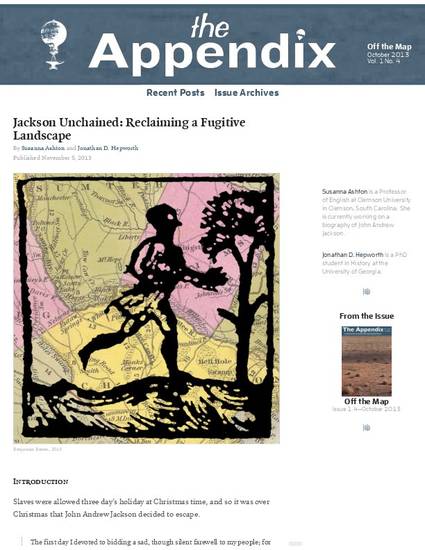
Slaves were allowed three day's holiday at Christmas time, and so it was over Christmas that John Andrew Jackson decided to escape. The first day I devoted to bidding a sad, though silent farewell to my people; for I did not even dare to tell my father or mother that I was going, lest for joy they should tell some one else. Early next morning, I left them playing their "fandango" play. I wept as I looked at them enjoying their innocent pay, and thought it was the last time I should ever see them, for I was determined never to return alive. To run by day or by night? To flee on a road or in the woods? To rely upon subterfuge or unadulterated boldness? These were life-or-death decisions for a fugitive slave. When John Andrew Jackson fled a Sumter District plantation in South Carolina, he made strategic choices for his survival. he had a pony and rode mostly on roads, talking his way out of confrontations. Jackson gambled on his plausibility and charm. Most of all, he clung to a faith in his ability to mislead others with his own imagination. He crafted his own terrain.
Available at: http://works.bepress.com/susanna_ashton/31/
